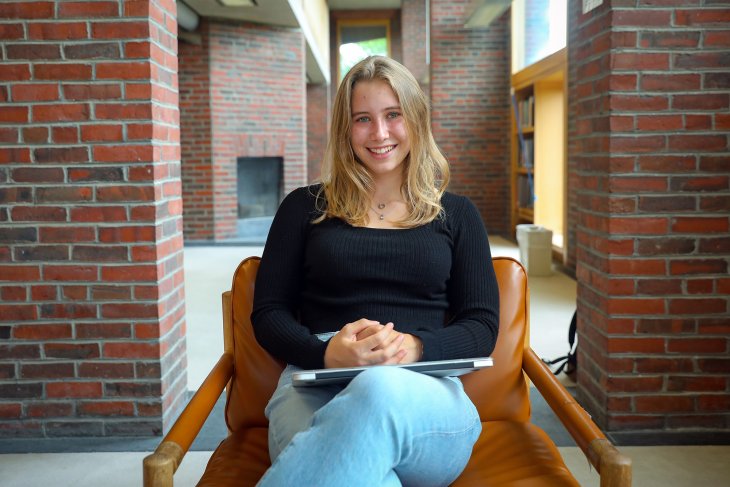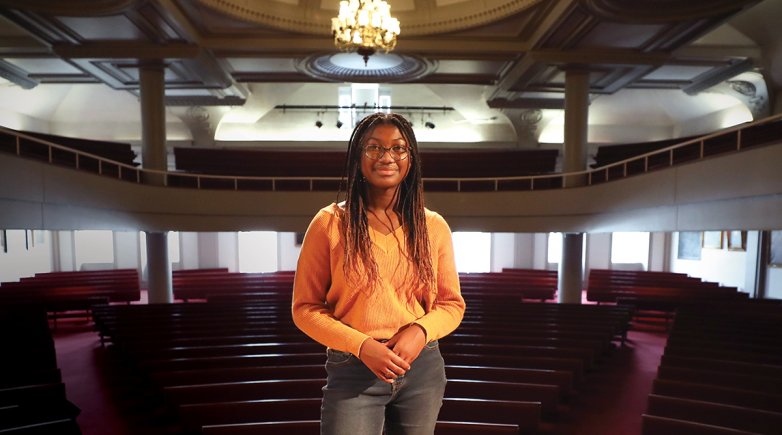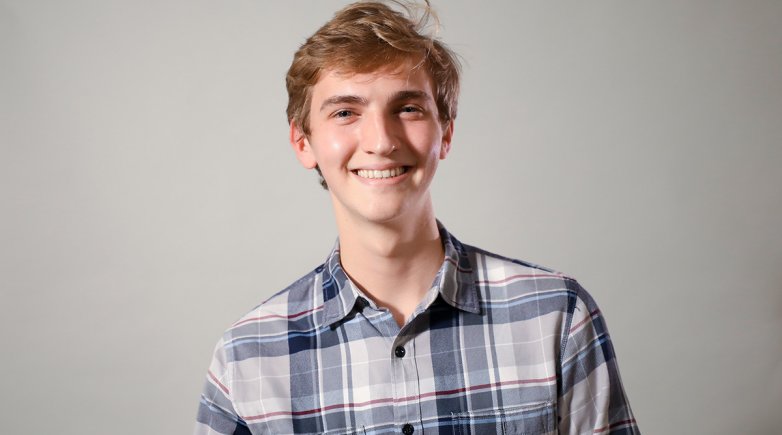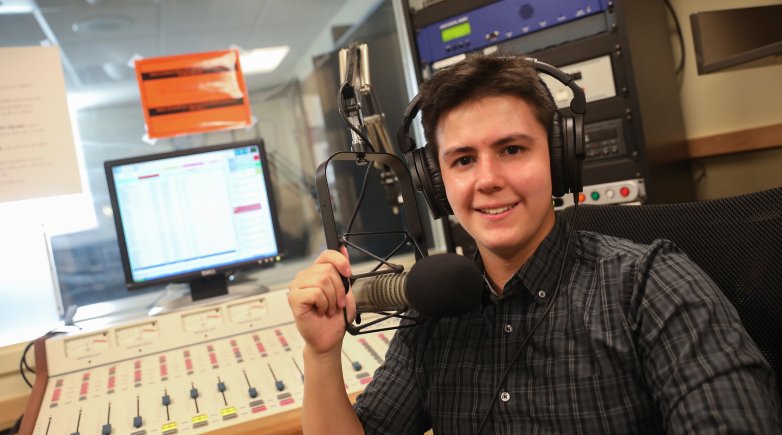During her time at Exeter, Casey has thrown herself headfirst into initiatives aimed at improving student well-being on and off campus. She’s the co-head of Exeter’s chapter of Students Demand Action (SDA), a national movement she first got involved with during her prep year, after a student at her former high school was among the victims of the mass shooting in Thousand Oaks, California in November 2018. "There was a lot of stuff happening in my community back home after [the shooting],” Casey says. “Mourning and grief, but also a lot of threats to different schools locally. That was really a hard thing to be away from home for, but that's what pushed me into the movement, seeing how much [violence] affects everyone in a community."
Though SDA’s activities have been limited due to COVID restrictions and widespread Zoom fatigue, Casey hopes it can hold more in-person meetings and events in the coming school year. “We want to bring [the threat of gun violence] more into the open and have more conversations about it, because it’s not slowing down,” she says.
Casey is also a co-head of Exonians Against Sexual Assault, a campus group dedicated to educating students and spreading awareness about issues surrounding sexual assault. Though EASA has historically focused on changing student culture, including reinforcing the idea — now school policy — of affirmative verbal consent, Casey has been active in recent efforts to foster better communication between administrators and students about instances of adult sexual misconduct on campus.
In the fall of 2020, Casey had the opportunity to introduce Rachael Denhollander, the first woman to publicly accuse former Michigan State University and USA Gymnastics doctor Larry Nassar of sexual assault, at a virtual assembly. A lawyer, advocate and author, Denhollander spoke about how to instill ideas about consent in both girls and boys, and how to empower kids from a young age to know and respect their own boundaries. “When we talk about sexual assault, we see people as victims,” Casey says. “It was powerful to see Denhollander as a strong, empowered woman talking more about her experience as a survivor, and what she’s doing now.”
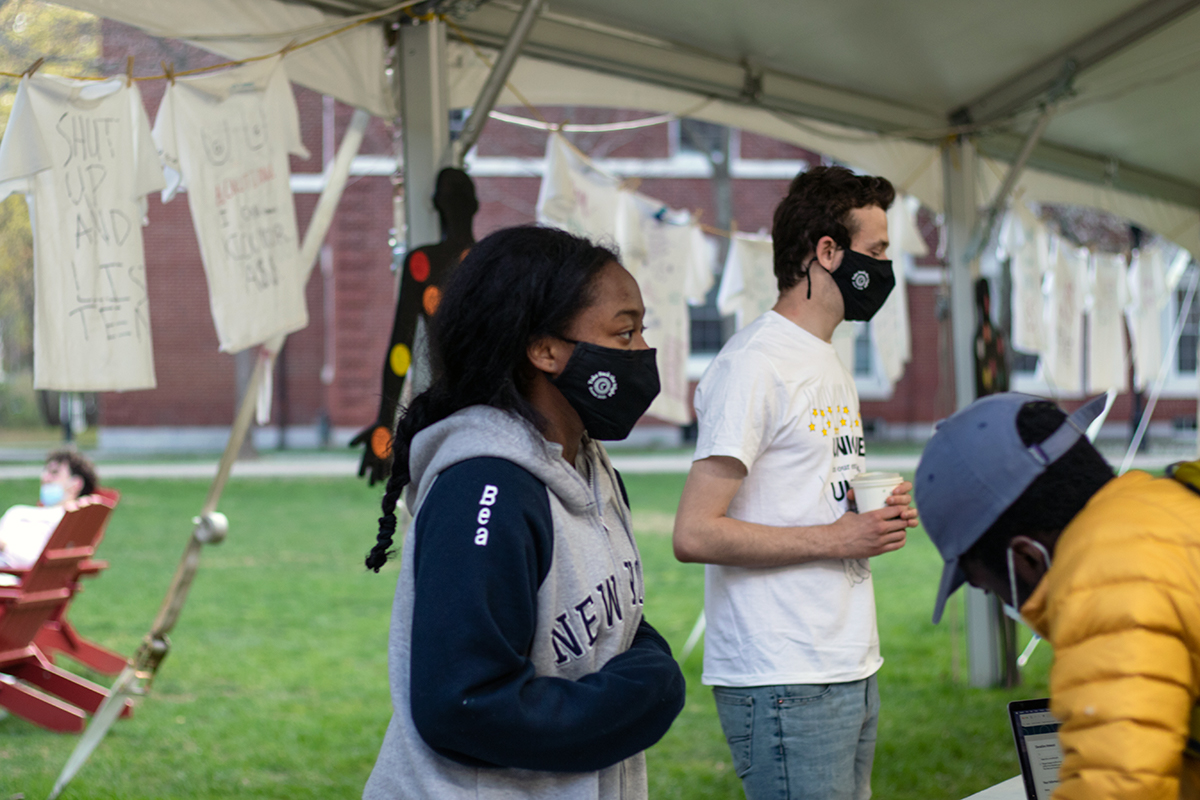
In collaboration with Director of Student Well-being Christina Palmer and the Feminist Union (known on campus as Fem Club), EASA organized the school’s first Take Back the Night, part of the worldwide movement aimed at ending sexual and domestic violence in all forms, in April 2021. In addition to the powerful Clothesline Project, for which students wrote messages with Sharpie on white T-shirts that were hung up on the quad (“The way I dress is not a yes,” read one shirt), Casey and her fellow organizers asked students to sign dorm pledges to reduce cultures of sexual assault and make Exeter a safer and more inclusive place.
They also gave out tea lights to put in dorm windows that night to signify solidarity with the cause, as well as masks emblazoned with the Take Back the Night logo. “I think it went really well,” Casey says of the event. “Afterwards, it was cool to walk around campus, see people wearing the masks, and know who came.”
Casey says she has definitely seen a shift in Exeter’s approach to student well-being and an increased understanding of student mental health issues amid the upheaval caused by the COVID-19 pandemic. When it comes to tackling issues of sexual assault, she feels optimistic about EASA’s work with school administrators. “There are more conversations happening, and I do think everyone has good intentions, which is a good feeling,” Casey says. “Because if everyone has the same goal in mind, then eventually you can get there.”
